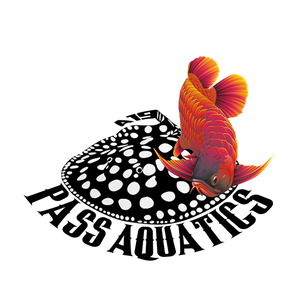
Barbonymus schwanenfeldii
Note: Due
to variations within species, your item may not look identical to the image
provided
|
Synonyms |
Barbus schwanenfeldii, Barbodes schwanenfeldii,
|
|
Distribution |
Brunei, Cambodia, Indonesia, Laos, Malaysia,
|
|
Sexual Dimorphism |
Difficult to determine. Some mature females can
|
|
Maximum Size |
35cm (13.8?) |
|
Water Parameters |
Will acclimatise to a wide range of conditions.
|
|
Temperature |
22-28 deg C (72-82 deg F) |
|
Compatibility |
Large fish community |
|
Lighting |
No special requirements |
Care
A sizeable, but peaceful species which is suitable for the
larger aquarium (6ft+). Juveniles grow very quickly, so ample space must be
provided from the outset. Tinfoil Barbs are a shoaling species and should be
maintained in groups of six or more fish. Due to their size and feeding habits,
a decent amount of external filtration should be provided, along with very
regular partial water changes. The aquarium must be well-oxygenated. Tinfoil
Barbs appreciate a good amount of greenfood in the diet, and as such, aquatic
plants will be seen as food - many aquarists choose to aquascape the aquarium
either without plants or instead with plastic varieties. Tinfoil Barbs are not
aggressive and mix well with other medium-large sized fish of similar
temperament. However, due to their adult size, tankmates should be chosen with
care as large Tinfoil Barbs are more than capable of taking small fish. The
aquarium must be well-covered with a sturdy hood or coverslides as these fish
can jump, and an adult fish can be pretty weighty. Albino and leucistic
varieties (with yellow finnage) are sometimes sold under the Golden Tinfoil
Barb or Yellow Tinfoil Barb nametags.
Feeding
Smaller specimens will take flake, green flake, small
sinking pellets, and small frozen foods such as mosquito larvae, brineshrimp
and daphnia. Larger fish will enjoy bigger frozen foods such as krill, Mysis
shrimp, and chopped prawns/cockle. Fish of all sizes will eat aquatic plants, lettuce,
spinach, shelled peas etc. Greenfoods should be provided on a regular basis.
Breeding
Unlikely to breed in
all but the largest of aquaria. Soft, acidic water and a temperature of 27-28
deg C is required. Up to 4000 eggs can be scattered over plants or a marble
substrate. The parents will consume the eggs if not separated
